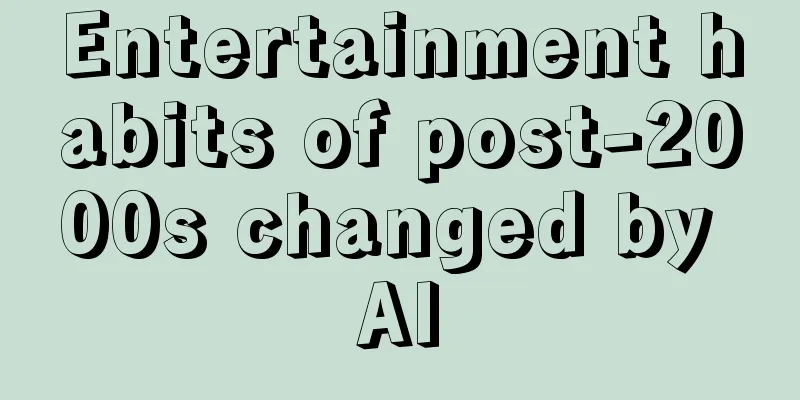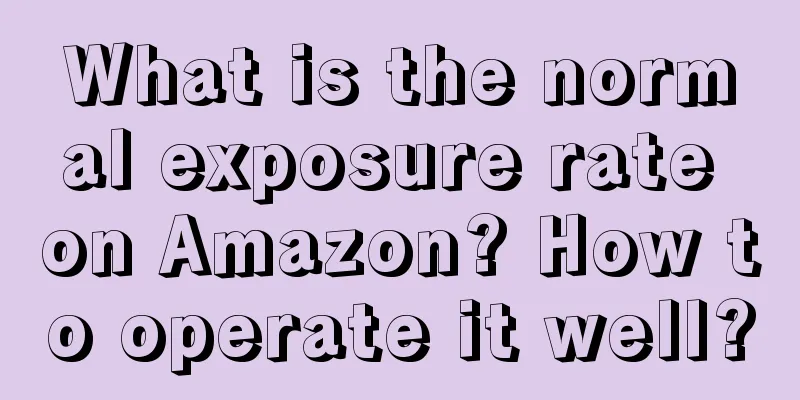Entertainment habits of post-2000s changed by AI

The shock of seeing Vincent's pictures and videos for the first time is still as clear as yesterday. My memory is more about the incident in which AI painting led to the cancellation of LOFTER users - probably the highest level of this unpopular community in recent years. But in less than two years, AIGC has gone into the night with the wind. If AI cover songs, AI face-changing, and AI painting are still using new tools for self-expression, then in the ascendant of interactive fan fiction and AI intelligent bodies, the youngest wave of young people have already handed over the expression itself to AI without any obstacles. This is exactly the case. I thought that the job of "coaxing people" would be the last place that artificial intelligence would leave for us living people, but I overlooked that the key to emotional value is the quantity and availability at any time and anywhere, and the quality is secondary - who can beat AI? Of course, those who oppose AI painting are still opposing it, trying their best to maintain the purity of tags on LOFTER, or helping each other avoid spoilers on Weibo. But in other fields such as audio and video, many secondary creation forms using AI tools are becoming new branches rising in their respective ecosystems, bringing impacts to expected and unexpected stakeholders. We are always thinking about the upgrade and impact that AI will bring to traditional entertainment production, and whether the current mainstream population will accept AI content. But perhaps AI is not targeting the original content or the original people. 1. Audio and video AI has become a popular activityProbably because there are more people who like to have fun in the audience, even though there have been incidents such as JJ Lin suing the UP host, Reba's fans rectifying the internet celebrity, and the face-changing in "One Thought at a Time", the audio and video AI industry has been smooth sailing to this day, and some tracks have become established. The first is naturally AI face-changing. This technology, called Deepfake, appeared as early as 2014 and became mainstream in 2019, no longer limited to upstream professional use. The UP host "Movie 72 Changes", who has nearly 50 million-level videos, made his fortune at the end of 2019. Perhaps influenced by the "Biaoxue" craze at the time, his early topics were mostly "Northeast Comedians x Classic Movies", such as Fan Wei replacing Ma Dongxi and Shen Teng replacing Iron Man. Now, five years later, face-changing games have become more diverse. Popular couples transformed into Tang Monk and Peacock Princess, actors replaced with female idols for live-action, and stars (mainly male stars) transformed into clay figures for gender change were all popular for a while. In 2023, with the controversy caused by the casting of dramas such as "The Moon Over the Moon", "Love is the Camp", and "One Thought Across the Mountain", AI face-changing has found its real place in the domestic entertainment industry - face-changing in popular dramas. The creators are more numerous, more ambitious, and more hot-spot thinking. Many old male gods and goddesses have been replaced with controversial characters, stepping down the original owners invisibly and venting the anger of the masses. Secondly, AI cover singing, that is, the voice cloning that created the interesting story of "AI Stefanie Sun", first use the singer's dry voice to tune the model, and then let it sing any song you want it to sing. There are some warm and dream-fulfilling secondary creations, such as having singers who have reduced their production or have passed away sing new songs, having South Korean idols sing in Chinese - "XX, I found out that this is how it feels to understand your singing", and having members who usually only have a few lines of lyrics sing the whole song. There are also a lot of fun-oriented ones, such as having Monkey King cover European and American classics, having "SpongeBob SquarePants" characters form a group to cover Kpop, and having European and American stars sing "Beijing Welcomes You" with both imitation and face-changing. Also in 2023, as tools and creators become more mature, this track has seen more hot-button thinking and aggressive gameplay like the face-changing of popular dramas: covering new Kpop songs, current groups covering each other's songs, or seniors covering juniors. The meaning of comparison is also self-evident. Including the Korean group LE SSERAFIM, whose voice has always been controversial, turned over at the Coachella Music Festival. The UP host "-欧典欧典欧典欧典欧-" quickly launched a cover of the same song by European and American Divas, which is a deluxe version of "Sister Lang" on the cloud. Compared with these two classic pull-down modes, there are also some hot products that take advantage of the popularity of new technologies and new tools, which are popular in fits and starts but not sustainable. For example, Guo Degang's English crosstalk, which became popular with the translation tool HeyGen at the end of last year, and the recent "Steel Gate Music". The "Steel Gate" meme originated from a proctologist's remarks during a diagnosis. In fact, this should have been a similar wave of imitation writing to the previous nonsense literature and crazy literature, but due to the emergence of Suno, who can create songs with one click, the music section of Bilibili won the first prize in this meme competition . Many UP hosts input the entire set of "Steel Gate" copywriting into the software, selected the style for it, and generated a batch of serious and nonsensical songs. In addition, AI assistance is increasingly used in traditional video re-creation, such as AI restoration of image quality and AI reading of text. According to Mr. Hard Candy’s observation, the criticism of Ruyi’s Royal Love in the Palace was not only due to Bilibili’s support for medium and long videos, but also likely due to the AI’s liberation of productivity. For a 30-40 minute video, the text can be read entirely by AI, and the UP host is only responsible for controlling the rhythm and playing more tricks in voice selection. 2. Thousands of people have different faces in "fan fiction", and they "pose" fan comics on their own"The boys who hate men but are straight finally have a way to fall in love!" In March, a video of a woman blushing and having a heartbeat while talking to ChatGPT went viral on Weibo. The AI voice was natural and lively, and even had some personality. Similar situations also occurred in China. Currently, there are more than ten AI social apps on the market, and many products have similar functions or are eager to try them. However, don’t rush to bring up science fiction movies to emphasize the consequences of cyberman-machine love. If you look closely, young people use these AI chat companions in a variety of ways. "It's not that ChatGPT/Zuoyebang is unaffordable, but Xingye is more cost-effective." Xingye is a relatively popular one among these apps. In addition to using it as a game with a higher degree of freedom, some people use it to look up information and practice speaking, some use it to assist in the creation of novels and scripts, and some transplant the "set circle" gameplay to create an intelligent body for their own OC (original character), or directly use it to make OC, call it "cub", and interact with it or open it to interact with other users. In addition, many users will create intelligent entities for their favorite games, novels, film and television characters, and even three-dimensional stars. The similar APP Dream Island is developed by Yuewen, and its interface design will focus more on guiding users to create non-original characters. It is not difficult to imagine that this is probably related to Yuewen's big chess game of IP incubation. Based on these non-original characters, users can have an experience similar to interactive dream girl fiction and interactive fan fiction. The former is simply like the evolution of the Mary Sue game on Orange Light Games. It is no longer a rigid option and a predetermined plot, but a real-time generation of thousands of people and thousands of faces. For the latter, users can interact with the other party not as "I" but as one party of the CP to see what new plot can be triggered. When it comes to AI and fan fiction, the fan fiction tool that is more in line with normal imagination is actually Caiyun Xiaomeng. It focuses on AI continuation. As long as you give it a paragraph of text or even a keyword, it can generate hundreds of words at a time, and there are multiple groups of options. As long as the user keeps adjusting and calibrating, the story can continue to be written. As early as 2021, Caiyun Xiaomeng promoted its sequel function, and at that time, many Caiyun Xiaomeng reviews and outrageous sequels of famous works emerged on Bilibili. But obviously, it is still not hot today. The reason may be that people have a complicated attitude towards AI writing. Many people are willing to let AI take over those writing tasks in life that do not require emotion and writing skills, but this does not include online articles and fan fiction. Good online articles are fine works worth paying for, and good fan fiction is the resonance of souls between like-minded people. Using AI can easily give people the feeling of cutting corners and being hypocritical. Creators can use it, but it is difficult for the circle to accept it. The "AI character creation platform" NieTa may also face a similar dilemma. Simply put, it provides one-click generation of fan comics, and the gameplay includes "text pinch", "image pinch" and "CP pinch". The first two are to input text or upload images to generate comics, and "CP pinch" is to select characters and poses for them to take intimate photos. According to relevant reports, since the launch of the WeChat mini program in April 2023, NieTa's social media exposure has reached about 250 million times, and it has been ranked in the top ten of the daily list of video accounts, animation and games many times. The team has also recently received more than 10 million yuan in financing. However, the previous LOFTER incident shows the attitude of the fandom community towards AI painting. NieTa has received good responses on Douyin and Xiaohongshu, but on Weibo, LOFTER and Bilibili, where fandom culture has been rooted earlier and deeper, it is still the official account that is having fun . Once discovered, it is estimated that there will be a round of trial first. 3. What has AI changed?It is not difficult to see that AIGC has lowered the threshold for creation and liberated productivity again, but this will undoubtedly have an impact on traditional secondary creation forms and the existing secondary creation ecosystem. For example, after the popularity of AI face-changing, the weird couples (such as Voldemort x Lin Daiyu) that were once a major label on Bilibili rarely become popular, and AI cover songs and one-click songs have accelerated the demise of traditional ghost videos (today's "Gangmen", the past "Jin Ke La"). The core is still deconstruction, collage and spoof, but AI is obviously faster and more timely. In the end, it is no longer the craftsmanship and intentions that determine the data, but the algorithm and the hot thinking, which can easily dampen the enthusiasm of traditional scissor hands and traditional ghost creators. As for the creative ecology, it is a miniature version of "AI taking away people's jobs": AI voice replaces real-life CV, and AI painting threatens real-life painters. Between the "setting circle" for raising OCs and the "painting circle" for drawing, the "civilian industry chain" of one side commissioning and the other side accepting has been running for many years. If one day a large number of "setting circles" migrate to apps like Xingye, forming an internal closed loop, the demand for commissioning works from real painters will continue to decrease, and the communities that used to serve the release and exchange of setting circle content will also face corresponding user loss. However, this is mainly the idea of the creators. Countless facts have proved that consumers don’t care about copyright, ethics, the future of art and the industry. Just like the face-changing in a popular drama, the only ones who are upset are the fans whose faces are taken away, while most people are happy to see it happen. Those who like old actors can see them "performing" in new dramas after many years, and those who like entertainment can enjoy more extreme attacks and criticisms. Star-chasing girls want to watch more, CP fans want to eat more, and otakus want to see erotic pictures. It is said to be a demand for content, but in fact it is an emotional demand. Therefore, the way of production and the level of craftsmanship are important and unimportant. This is probably why assembly-line free online articles and crude mini-program short dramas can be so popular, everything is for the emotional value of that moment. Ultimately, technological progress will point to the “change of human nature” - the rapid rise of these tools is the result of the generational gap, and will further exacerbate the generational gap. People of different generations have different growth environments and usage habits. For example, for someone born in the 1990s, Hard Candy, posting his own photos online is a hurdle he cannot get over, and he would rather avoid it if possible. New netizens in the mobile Internet era never think twice about it, and they openly appear in person or share this and that in the comment section. Many of the entertainment habits of the post-00s and post-10s are facilitating the entry of AI. They are already playing YuC to unleash their acting talent, and they don’t feel awkward talking to the immature intelligent entities. They are also chasing stars or playing games, spending money to buy immersion and emotions, and have different views on reality and virtuality from their predecessors. In addition, when the fan circle became active in the post-00s, transactions and outsourcing gradually became the norm, and the "iron laws" of generating electricity for love and writing from my heart have long been shaken. On the other hand, those born in the 2000s and 2010s were exposed to short video filters that are more severe than traditional PS photo editing during their growth. Those born in the 2020s have been exposed to the "flawless" offensive of AI paintings, AI portraits, and digital human bloggers since birth, and their aesthetic tastes will inevitably be affected. In fact, this divergence has already begun to emerge. In the content produced by fans, the photos of the fans are becoming smoother and smoother, and the color adjustment of the photos and the mixed cuts is becoming more and more distorted. The downstream affects the upstream, and the ancient idol dramas are criticized for smoothing the skin, and they are also criticized for not smoothing. The contradictions are concentrated on actresses who have taken the lead in "AIization". Ju Jingyi, who is always on a different level from others, and Zhang Yuxi, who is known for her "modeled face", are often questioned in public opinion, but are loved on short video platforms, precisely because they have already achieved the look that many people pursue through post-production in the feature films. So you "old people" may not like the Internet celebrity faces now, but maybe when the post-2010s become the mainstream, the movies and TV shows will be full of Internet celebrity faces. Just like the square-shaped face aesthetic of the post-60s, the oval face aesthetic of the post-90s is also a historical product. Let's continue to think divergently. Even if traditional literature and film and television will not completely give way to dialogue and interactive dramas, and even if AI scripts and novels may not surpass real people and subvert traditional creative rules, what if IP characters become chat companions in the minds of young people? Will it affect the design of upstream stories and characters? For creators, it is no longer a precaution to think about how to serve the audience that has grown up in the AI era. Author: Gu Han; Editor: Li Chunhui Source: WeChat public account "Entertainment Hard Candy (ID: yuleyingtang)" |
<<: Is the smoke of war coming for 618? Taobao and JD.com are overloading their military training
>>: As a blogger on Xiaohongshu, can I still make money through advertising?
Recommend
Employees who left big companies are flooding Xiaohongshu, creating a new money-making track
Many bloggers who have resigned from their jobs ha...
Entrepreneurs must learn to make money within their own cognition first
The author of this article has summarized a common...
WeChat Metaverse is here!
The future: Metaverse for everyone? Facing the fut...
Money is the key to a marriage, but live dating has risks
Some time ago, Wang Po from Kaifeng became popular...
How to open a new site without graduating from Shopee? What are the graduation requirements?
After a new seller successfully applies and opens ...
Halfway through 2024, where is AI going?
The big model industry is shifting its focus to ac...
How long does it take for Amazon's order defect rate to recover if it exceeds 1%? What is the reason for the defect rate?
As one of the world's largest e-commerce platf...
Why is Tai Er Pickled Fish so popular on the Internet?
As a restaurant brand that specializes in fish, ho...
How to open a store on eBay? How to ship goods?
There are many online stores now. Many people give...
How to bind Orange Logistics to eBay? How to calculate Orange Logistics fee?
As a professional cross-border logistics service p...
Is Shopee Vietnam easy to operate? Detailed analysis
Many people want to join Shopee because the platfo...
What are the cross-border e-commerce marketing strategies? Cross-border e-commerce marketing strategies
In recent years, the development of cross-border e...
How to manage brand equity?
The author of this article introduces in detail ho...
A must-read for operators: The logic behind Keep’s user growth
Despite the increasing number of fitness apps, Kee...
What are the cross-border third-party payment platforms? Which one is better?
When people shop on cross-border e-commerce platfo...









